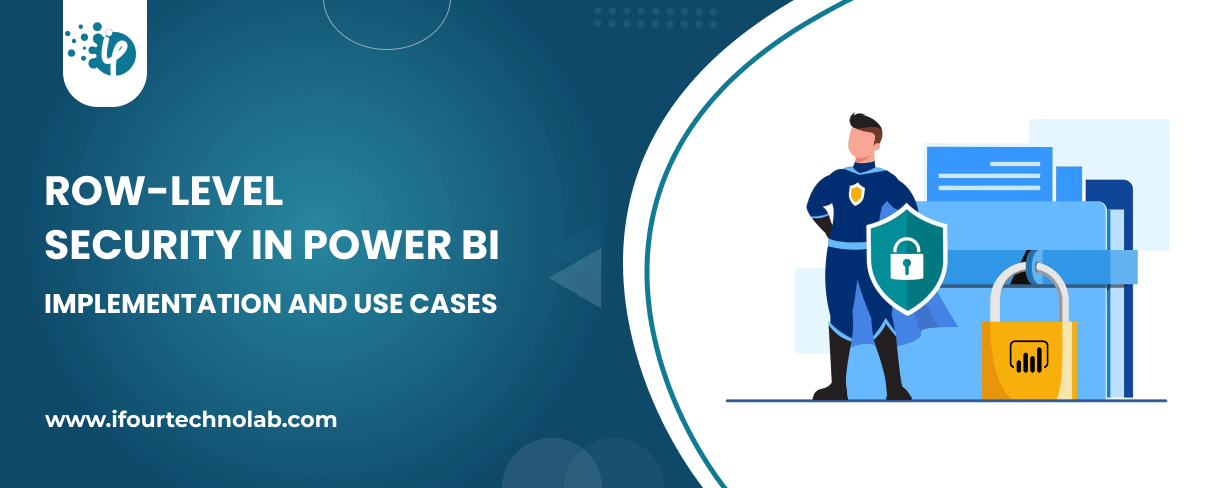17 Power BI Myths and Misconceptions Busted | Uncover the Truth
Did you know that 70% of CTOs (Chief Technology Officers) hesitate to adopt Microsoft Power BI because of its myths and misconceptions that float around. What they fail to see is...
Listening is fun too.
Straighten your back and cherish with coffee - PLAY !

Blockchain has gained a huge traction in the market due to its plethora of benefits and features. It promises to lower fraud, secure transactions, simplify trades, and reduce risks within the interconnected global banking system.
Blockchain has a lot to offer the Financial industry but familiarizing itself with its core processes is critical for business. Many Financial institutes have been skeptical of this invention and find it something that might compromise their operations. But when you shift your perspective, you'll see that it serves as a source of possibilities and a line of protection.
In this blog, we will look at various ways blockchain can impact the Financial industry.
"Blockchain can boost payment transparency, trust, efficiency, and security and lower the charges of financial services users and firms. Previously, the payments from one bank to another took up to 1 week. But with blockchain, the funds can be transferred instantly. The utilization of distributed ledger technologies and digital currencies allows faster convenient, and cheaper payment.
Central banks have started investigating whether remodeled payments could incorporate distributed ledger. Blockchain saves a huge amount of time and cash for all the parties involved. Moreover, it has eliminated the need for middle office and back-office staff, as payments can be sent instantaneously."
"As a result of blockchain, banking and lending services are completely streamlined, eliminating counterparty risk, and shortening the issuance and settlement processes. In addition, it reduces the operational risks and enables real-time verification of financial documents which is extremely important in the financial sector by using authenticated documentation and KYC/AML data Blockchain technology has the potential to increase payment transparency in the sector as well as security, efficiency, and trust. "
Blockchain is also ideal because it lowers costs for both financial services organizations and their customers. Prior to the introduction of blockchain technology, transferring money from one bank to another may take as long as a week but the transactions are being done within a blink of an eye."
"The financial industry is ripe for disruption. For too long, banks have been slow to adapt to the needs of their customers, and they have been content to rake in profits while providing subpar service. But the tide is turning, thanks in part to blockchain development services.
Blockchain is a distributed database that allows for transparent, and tamper-proof transactions. This makes it perfect for the financial industry, which has been slow to adopt new technologies due to concerns about security and transparency.
With blockchain, there is no need for a central authority to oversee transactions, as each transaction is recorded on a public ledger. This not only makes transactions more secure, but it also makes them more transparent, as anyone can view the ledger to see who has made what transaction.
The adoption of blockchain by the financial sector could potentially lead to lower costs, faster transactions, and improved security. It could also disrupt the existing power structures within the industry, as decentralized systems are more democratic than centralized ones.
Ultimately, only time will tell how big blockchain will impact the financial industry. But one thing is for sure: it is sure to shake things up.
"Blockchain has the potential to transform the financial sector by enabling faster and more secure processing of financial transactions at lower fees. This is especially true for cross-border payment transactions, where blockchain is used to handle payment confirmation and processing in minutes rather than days and is estimated to bring 3-17% transaction processing cost savings. Offering immutable, timestamped records of all financial data and transactions, blockchain drives full transparency of financial services and helps increase trust between financial organizations and their clients. Also, blockchain provides smart contract-based automation across financial transactions enforcement and recordkeeping, which helps financial services companies drastically increase employee productivity"
Blockchain can increase payment transparency, efficiency, trust, and security while cutting costs for financial services businesses and users. Payments between banks used to take up to a week to send; now, owing to the blockchain, they are completed in minutes. Blockchain technology has the potential to make the financial services industry more transparent, fraud-resistant, and cost-effective for consumers. Transparency is improving. Since consumers perform activities on a public ledger, blockchain can make the financial business more transparent. Blockchain, on the other hand, is safe, transparent, and nearly impossible to alter due to its design and features. In the financial industry, this fundamental technology enables cash transfers to be made with the assurance that the transaction is safe and secure.
" The impacts of blockchain on the financial industry are vast. Blockchain technology offers the potential to reduce costs, increase transparency and security, speed up transactions, and improve regulatory compliance.
Blockchain is a distributed ledger technology that is used to record transactions in a secure and transparent way. This technology can be applied to any kind of transaction, whether it is currency, stocks, or other assets. Blockchain has the potential to simplify transactions and make them more secure. We can see blockchain as an opportunity for banks, credit card companies, and other financial institutions to save money on transaction costs while also improving their security measures. Blockchain is said to be one of the biggest innovations in the financial industry. It is a technology that has the potential to change how we manage transactions and store data."
"Blockchain has significantly disrupted the financial services industry, as it has introduced the use of “Smart Contracts”, which has meant that there is no longer a need for personalized contracts, as they act as regulators that make sure all parties involved fulfill the conditions stated in the agreement before funds can be released. And since all transactions are self-executing agreements that are immutable and require no middleman, this eliminates the need for lawyers, lengthy amendments, or sizable amounts of paperwork. And since the ecosystem is effectively transparent, it also makes it possible for transactions to be verified and documents signed remotely."
"From every edge, the financial industry has been led by Banks at its core.
With the advent of Blockchain as a technology we had seen the FinTech industry believing in Code and its proven by the market share the whole crypto ecosystem is holding now.
At its peak Crypto shared more than $2T of the Financial Industry. Owned by the people and not governed by some central entity.
Blockchain made the ecosystem secure and trustless. This can lead to a paradigm shift for the Financial business where we explore the true meaning of Ownership and Transparency
"Blockchain helps boost the financial industry's transparency as users perform numerous activities on a public ledger. Such openness can expose ineffectiveness, such as fraud, leading to problem-solving that could lower the risk for financial institutions.
On the other hand, Blockchain adds security to the financial industry as consumers have already become active online. The digital universe is a breeding ground for scammers. But with Blockchain technology, such a concern has drastically reduced. Money transfers and payments made on the Blockchain are more traceable and faster than in conventional banking. The hole of financial fraud can be filled with Blockchain's cryptographic algorithms, which bring security."
"Stock markets are supremely volatile and need strong security support for a seamless transaction flow. In order to keep principles of web security in check, countless major stock exchanges are discovering the potential of blockchain technology in their operational processes. The leading idea is to allow almost immediate stock settlements by lowering the transaction time and operational cost. Moreover, this technology also automates compliance via smart contracts with maximum transparency and security.
For example, NASDAQ utilizes blockchain technology to share and issue private securities. Another example will be the London Stock Exchange, which is discovering blockchain scopes with cross-industry groups of institutions."
"Firstly, operations conducted on the blockchain are much safer. The system is virtually immune to DDOS attacks while sharing data between a lot of different nodes makes fraud much harder.
Blockchain can also introduce faster and cheaper payments for everybody. While a typical money transaction takes 2 to 6 business days with the traditional financial system, the new technology can execute it within seconds. The usual 10% fee can be reduced to a fraction of a percent, and the $500 million that is currently spent by the financial institutions to comply with KYC regulations will be gone as well, making the bill much more moderate.
The boon that Blockchain can bring to the financial system mainly also has to do with widening the customer base. There are 1.7 billion people in the world who are currently underbanked: introducing these people into the financial system is beneficial for everyone. That is why Africa is currently the leading region in cryptocurrency activities.
In finance, blockchain can be used (among other things) for international money transfers, combating money laundering, performing security clearing, keeping track of stocks and bonds owned by clients, and ID/data protection.
The implementation of this technology will free up a lot of resources and optimize processes, making the system more efficient overall."
Blockchain technology has become the focal point for many technocrats and businesses. It offers a plethora of benefits and enables businesses to run securely. The Financial sector can benefit greatly from this ground-breaking invention if it manages to learn the ins and outs of this platform. With Blockchain, operations are made easier, fraud is decreased, and individual finances and legal rights are protected. In this blog, we discussed how blockchain can impact the financial industry.

Did you know that 70% of CTOs (Chief Technology Officers) hesitate to adopt Microsoft Power BI because of its myths and misconceptions that float around. What they fail to see is...

Every CTO knows the struggle of managing complex reports. The inefficiency of scattered data, the constant juggling between reporting tools, the challenge of ensuring accurate KPIs...

The very first reason why you should implement Row Level Security is to foster trust, a crucial element for any business's success. Next, it reduces data clutter and helps you load...